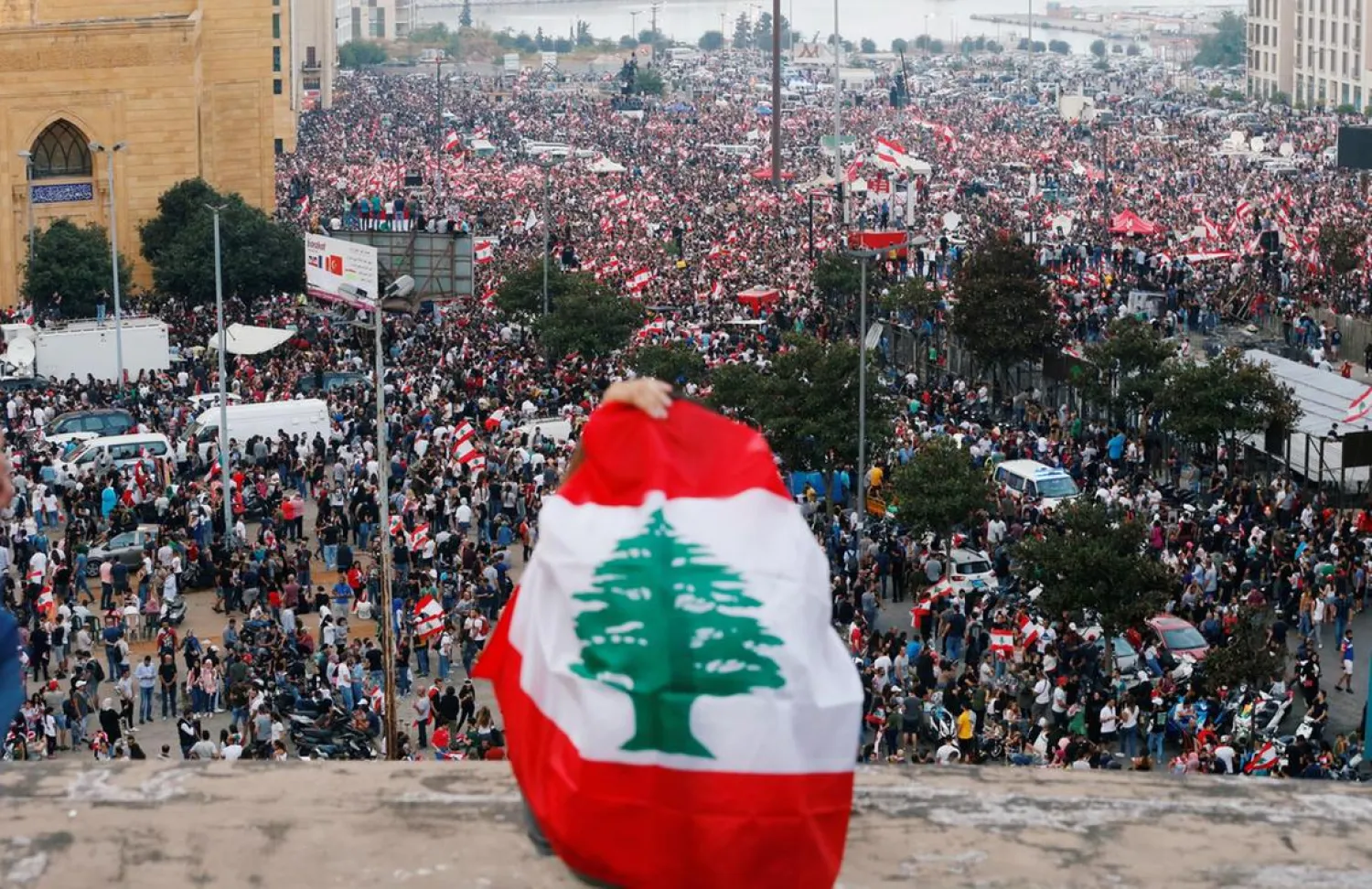A new crisis emerged in Lebanon after the “Shiite duo” of Amal and Hezbollah, as well as the Free Patriotic Movement, voted for Hassan Diab as the country’s new prime minister-designate. The development revived the rivalry between the March 8 forces, which includes Hezbollah, Amal and the FPM, and the March 14 forces, which had abstained from naming Diab as PM.
However, the March 14 camp’s decision to distance itself or its deliberate exclusion from the government has not prompted its members to regroup. Conflicts of interests among its members and their own personal agendas have fragmented the camp that has championed Lebanon’s sovereignty away from foreign meddling.
Prominent members of the camp have doubted that a new political reality would be introduced in Lebanon even though the March 14 forces support the popular uprising that erupted on October 17.
Mustaqbal Movement politburo member, former MP Mustafa Alloush said: “The ties that have been broken between the March 14 forces cannot be mended.”
“Experience in recent years has proven that every party has its own agenda and prioritizes partisan and sectarian interests above the national ideals of the March 14, 2005 revolution,” he told Asharq Al-Awsat.
Moreover, he did not rule out the possibility of some March 14 parties striking settlements with Hezbollah and its allies, “as they have done in the past.”
“In politics, everything is possible. There can be no permanent rivalry and no permanent alliance. Everything is based on interests,” he stated.
“The March 14 forces may return to their former unity should they receive strong regional support,” he remarked.
The March 14 camp does share some of the demands of the ongoing popular protests, most significant of which is limiting the possession of weapons to the military and state security forces and restricting the decision of war and peace to the state.
The factors that forced the camp out of power are incapable of reuniting it, said a leading member of the Lebanese Forces of the March 14 forces.
Speaking to Asharq Al-Awsat on condition of anonymity, he was frank in blaming the current division in the camp on the 2016 presidential settlement that eventually led to Michel Aoun’s election as president.
“The settlement dashed all hopes for reuniting the March 14 forces,” he stressed.
“Unfortunately, we deliberately chose suicide because we opted for a settlement with a camp that has no agenda but to reach power,” he said in reference to Aoun and the FPM.
“Such a camp has displayed so much disloyalty. It struck a settlement with partners and no sooner had it sucked all of their blood, that it abandoned all agreements with them,” he went on to say.
“The whole of Lebanon is today paying the price of the presidential settlement that allowed Hezbollah to impose its control over Lebanon, which is now isolated from its Arab surroundings and international community,” said the LF member.
As it stands, the international community and Arab world have yet to make a stance over the Diab’s appointment as PM-designate. Their positions will emerge once the upcoming political phase in Lebanon begins to take shape.
Advisor to the Progressive Socialist Party chief, Rami al-Rayyes said: “Reviving the March 8 and 14 fronts is the thing of the past due to the various developments that have taken place.”
He cited the shift in priorities, the fundamental difference between the 2005 and 2019 revolts and the reshuffling of political cards after the collapse of the presidential settlement.
The March 14 camp is still committed to its slogan of sovereignty, independence and freedom, but it is too soon to speak about returning to the former political divisions, he told Asharq Al-Awsat. The positive cooperation and the political relationship between the Mustaqbal Movement, LF and Kataeb party will, however, remain.












